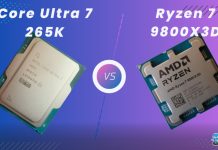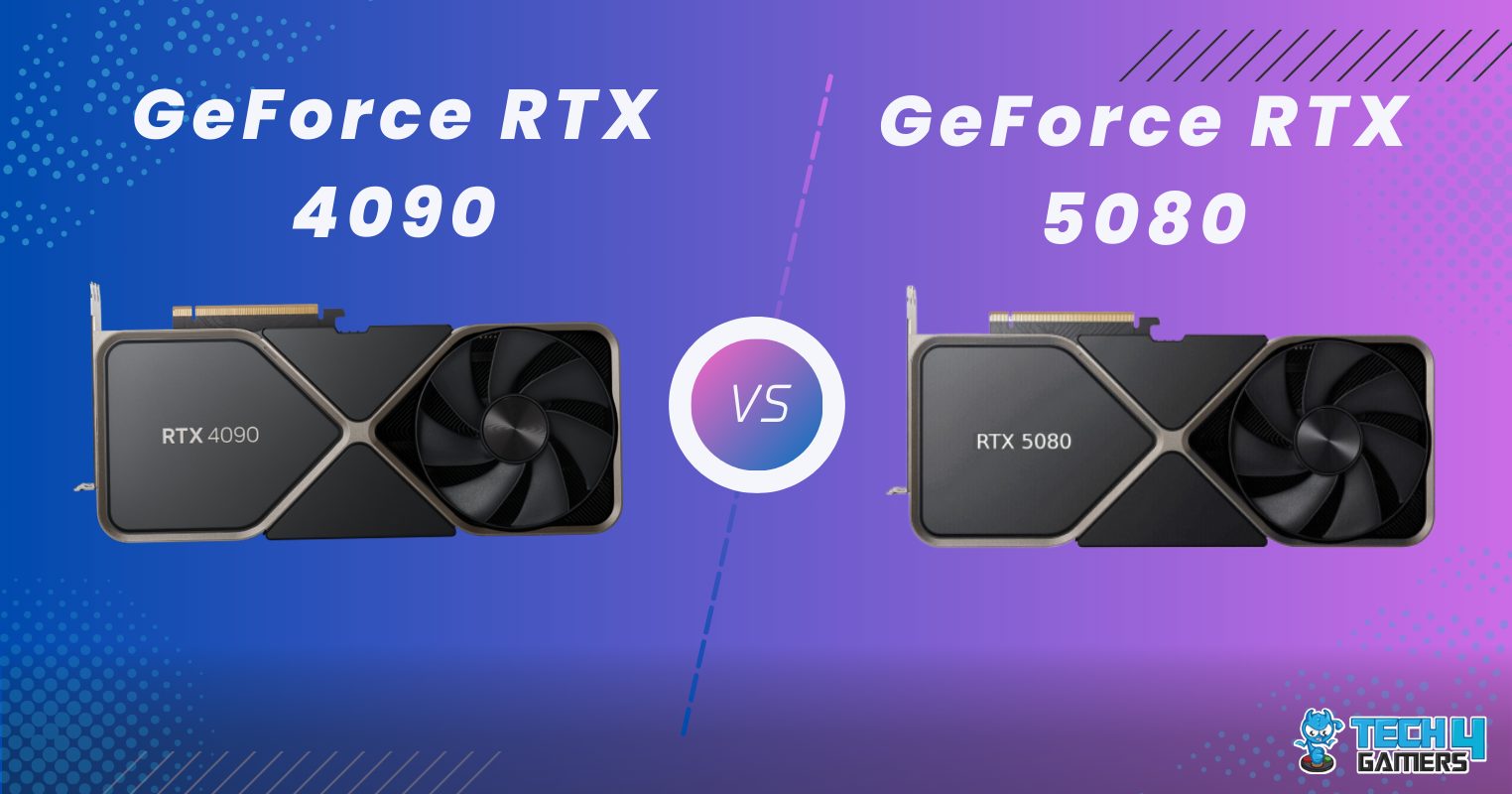The Ryzen X3D series processors have received high praise from both consumers and reviewers for their exceptional price-to-performance ratio. In this comparison, we will compare the Ryzen 5 5600X3D vs Ryzen 7 5800X3D to see how the new kid on the block measures up to the processor that started it all.
Key Takeaways
- In our gaming tests, the Ryzen 5 5600X3D performs 6% worse than the Ryzen 7 5800X3D.
- According to our benchmarks, the Ryzen 5 5600X3D consumed 24% less power than the Ryzen 7 5800X3D.
- There is about a 24% difference in price between these processors, with the Ryzen 5 being cheaper.
Comparison Table
| CPU | AMD Ryzen 5 5600X3D | AMD Ryzen 7 5800X3D |
| Core Architecture | Zen 3 | Zen 3 |
| Processing Node | TSMC 7nm | TSMC 7nm |
| Socket | AM4 | AM4 |
| Integrated Graphics | No | No |
| Launch Price | $229 | $449 |
| Launch Date | July 2023 | April 2022 |
| Best Motherboards | Motherboards For Ryzen 5 5600X3D | Motherboards for Ryzen 7 5800X3D |
| Best RAM | – | RAM For Ryzen 7 5800X3D In 2023 |
| Best Cooler | CPU Coolers Fore Ryzen 5 5600X3D | CPU Coolers For Ryzen 7 5800X3D |
Architectural Differences
- Core Count: One of the biggest differences between these two processors is the core count. The 5600X3D is a binned-down 5800X3D made from underperforming chips. For this reason, the 5800X3D had 8 cores and 16 threads, while the 5600X3D had 6 cores and 12 threads.
- Clock Speeds: The clock speeds on the 5800X3D are about 100 MHz higher on both the boost and base clock. The 5800X3D has a base clock of 3.4GHz with a boost of up to 4.5GHz, whereas the 5600X3D has a base clock of 3.3GHz and a boost of up to 4.4GHz.
- Cache: Both these processors have 96MB of cache on the die, so they do not have to rely on slower system memory to hold important information while gaming.
If you want to learn more about L3 cache, we suggest you read our guide on the topic. - Platform: Both these processors support the AM4 platform, which has become dirt cheap since the release of AM5. It also supports cheap DDR4 RAM instead of exclusively supporting DDR5 RAM like its more recent counterpart.
Ryzen 7 5800X3D Vs Ryzen 5 5600X3D: Gaming Benchmarks
In this section of the Ryzen 5 5600X3D vs Ryzen 7 5800X3D comparison, we will examine the performance of both processor chips in various games, having discussed the differences that are in their hardware. The tests in this section will be performed at the 1080p resolution using a test bench having the hardware listed below:
- OS – Windows 11
- CPU 1 – Ryzen 5 5600X3D
- CPU 2 – Ryzen 7 5800X3D
- Motherboard – ASUS ROG X570 Crosshair VIII Hero
- CPU Cooler – be quiet! Dark Rock Pro 4
- Graphics Card – GeForce RTX 4090 24GB
- RAM – Nighthawk DDR4 16GB
- SSD – WD Black SN850 NVMe SSD
- Power Supply – ENERMAX REVOLUTION D.F. X 1050W
Resident Evil 4
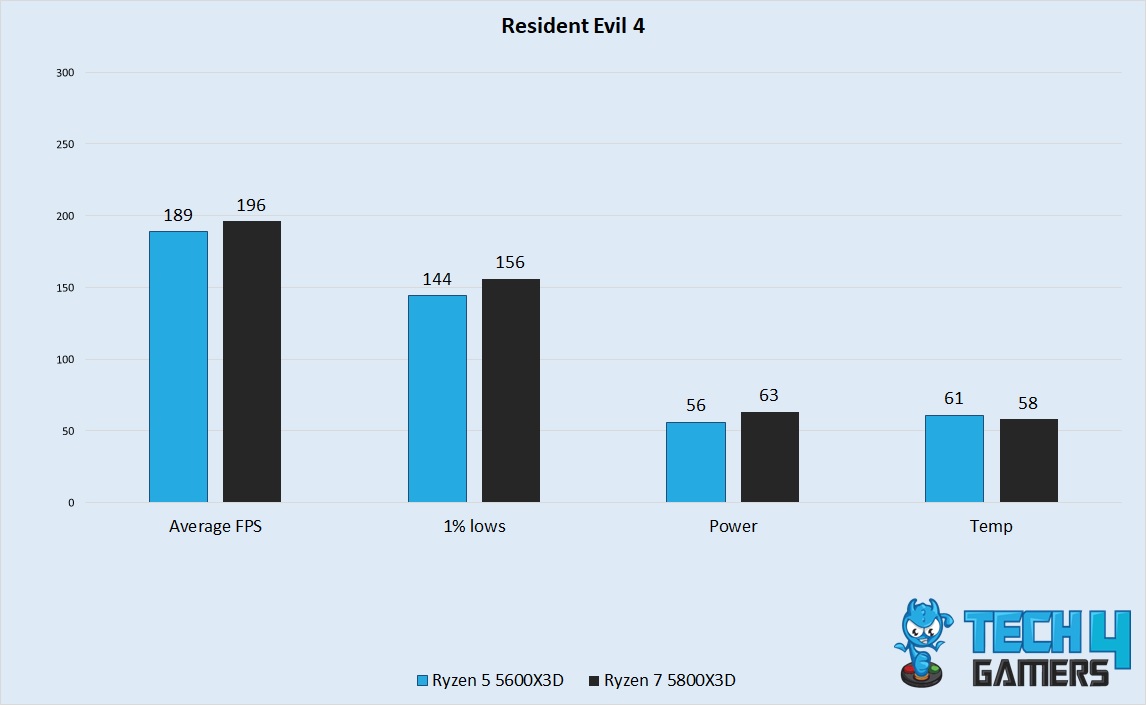
- Kicking off our tests, Resident Evil 4 performed unsurprisingly better on the higher-tier processor. The Ryzen 5 5600X3D had an average framerate of 189 FPS, whereas the Ryzen 7 5800X3D was slightly faster with an average of 196 FPS.
- 1% lows were also unsuspectingly better on the 5800X3D. Our gameplay reported the 5800X3D to have lows of about 156 FPS, whereas the 5600X3D managed 144 FPS.
Hitman 3
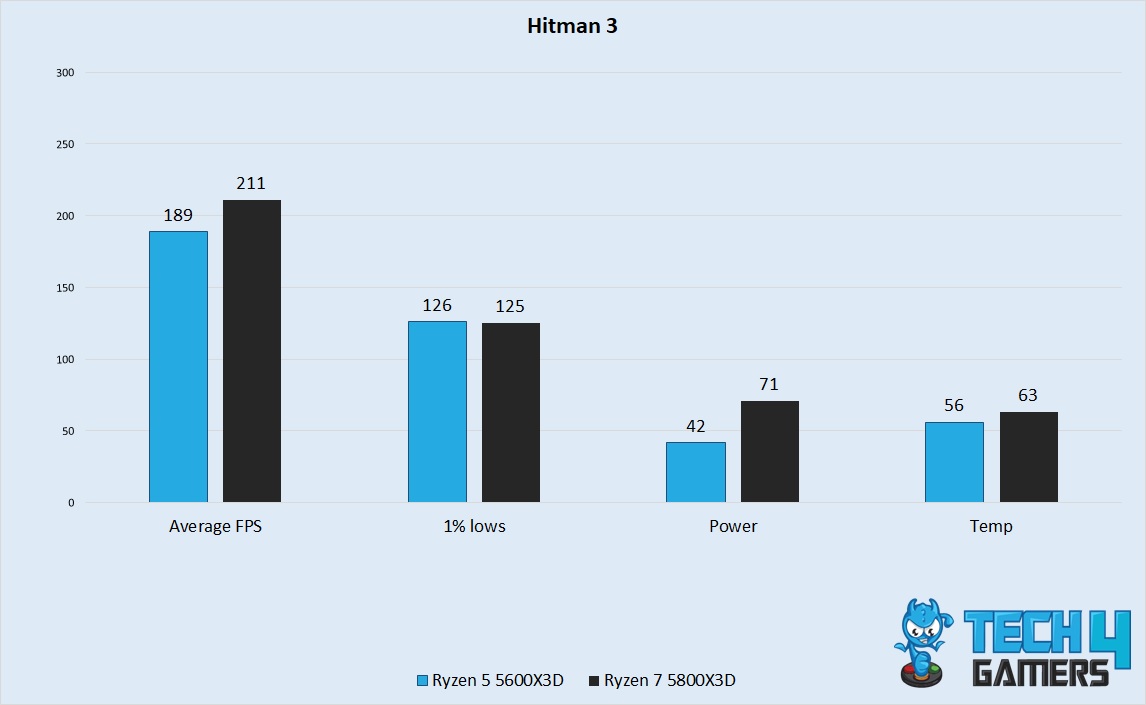
- Continuing to a more optimized title, Hitman 3 performed noticeably better on the 5800X3D. It had an average framerate of 211 FPS, whereas the 5600X3D averaged around 189 FPS.
- 1% lows were as close as they could get between these two systems, with the 5600X3D maintaining 126 FPS, whilst the 5800X3D maintained a marginally lower 125 FPS.
Cyberpunk 2077
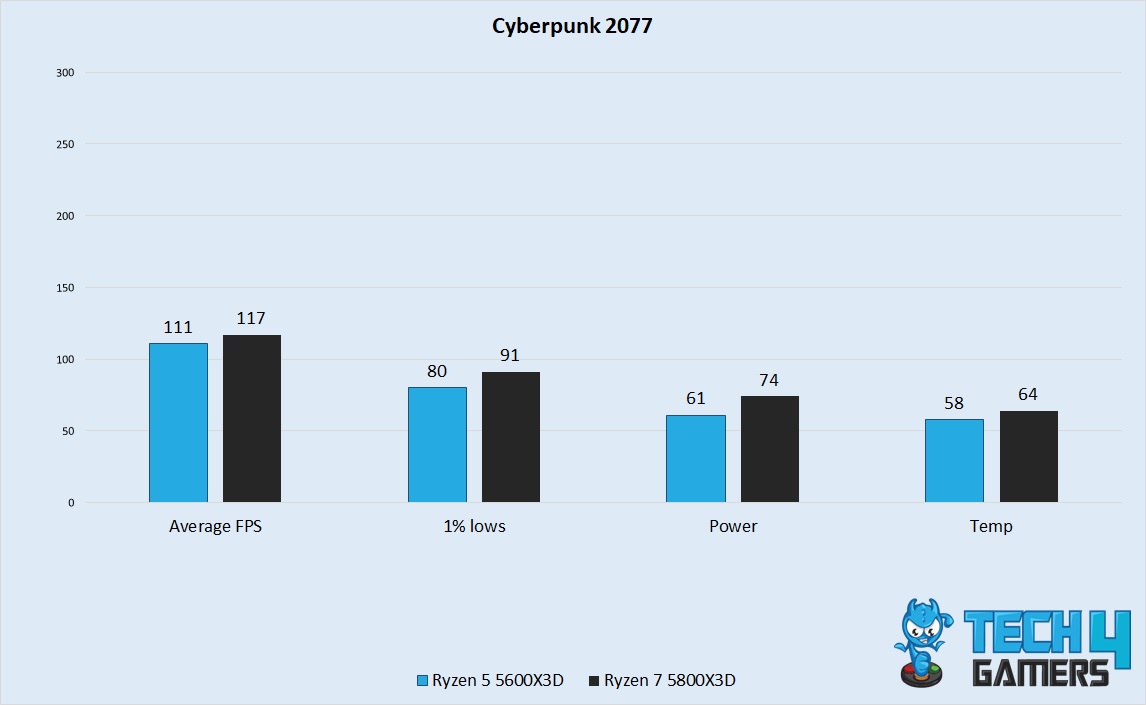
- Playing a more GPU-bound title, we see that the increase in performance of the 5800X3D is minimal, though still noteworthy. The 5800X3D averaged a framerate of 117 FPS, whereas the 5600X3D had a lower average of 111 FPS.
- The discrepancy grew larger with 1% lows. The Ryzen 7 managed 91 FPS, whereas the Ryzen 5 maintained 80 FPS. This was a noticeable difference in performance.
Forza Horizon 5
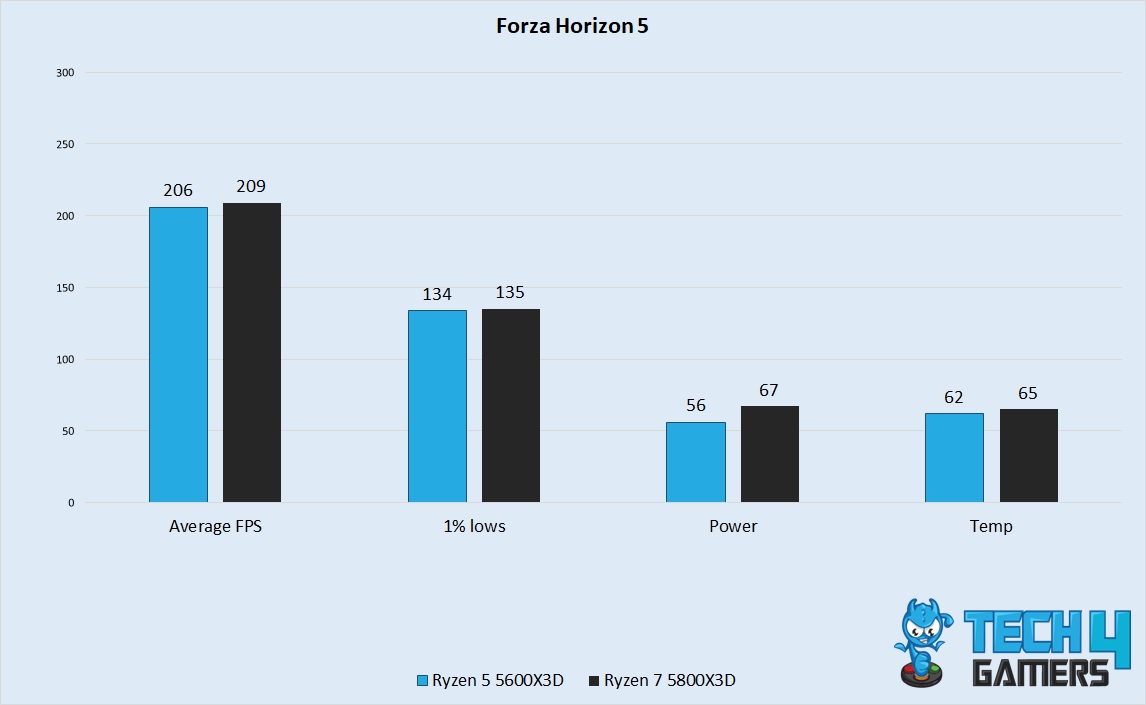
- Continuing the trend of testing high visual fidelity games, Forza Horizon 5 ran marginally better on the 5800X3D. The chip averaged 209 FPS, compared to 206 FPS on the 5600X3D.
- 1% lows were once again extremely similar in this title. The 5600X3D had lows of 134 FPS, whereas the 5800X3D had slightly higher lows of 135 FPS.
Hogwarts Legacy
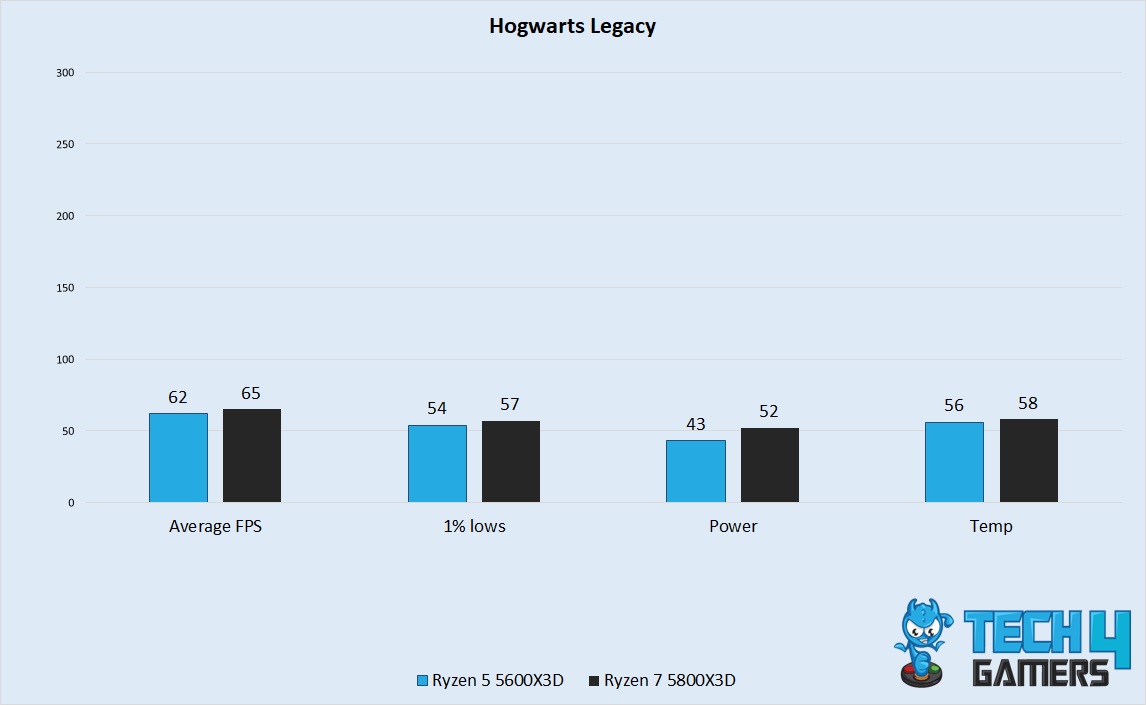
- Testing a newer game, Hogwarts Legacy ran marginally better on the 5800X3D in the benchmark test we performed with all the settings cranked up. It averaged 65 FPS, whereas the 5600X3D averaged around 62 FPS.
- 1% lows had the same delta, with the 5600X3D averaging 54 FPS and the 5800X3D averaging around 57 FPS.
Microsoft Flight Simulator
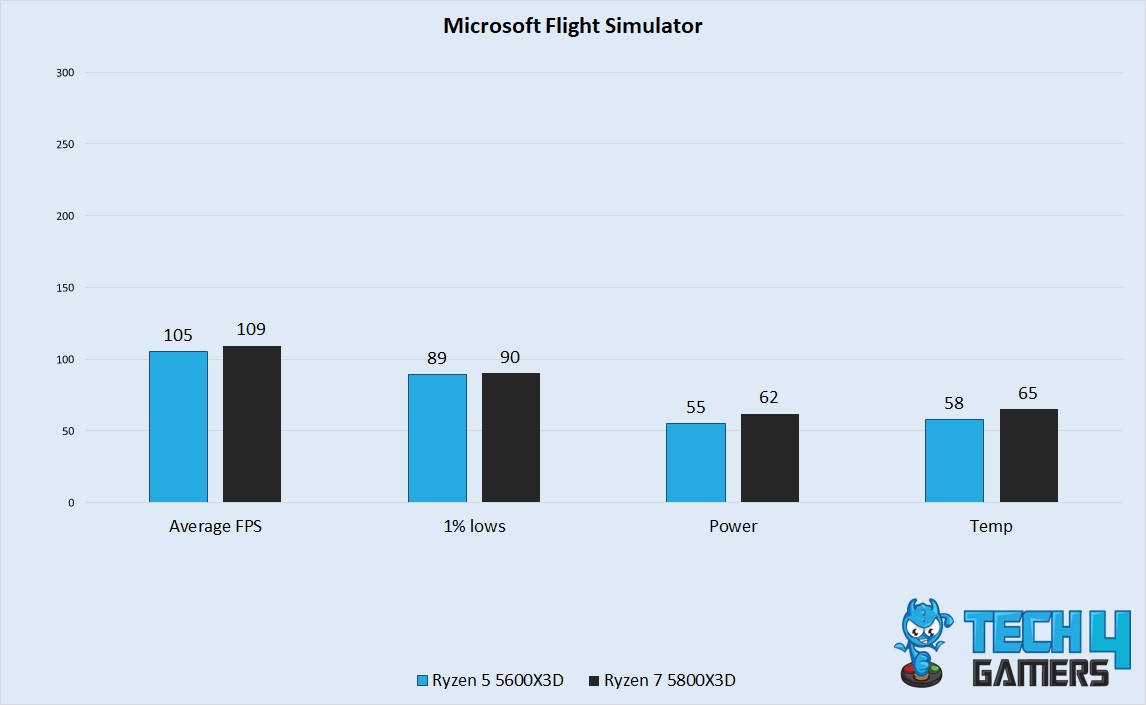
- Coming to a more CPU-heavy game, Flight Sim 2020 ran about the same on both processors, at least from a noticeability point of view. The 5800X3D averaged 109 FPS, whereas the 5600X3D had an average framerate of 105 FPS.
- 1% lows were again extremely similar between these two processors, with the 5600X3D getting 89 FPS while the 5800X3D getting 90 FPS.
The Witcher 3 – Next Gen
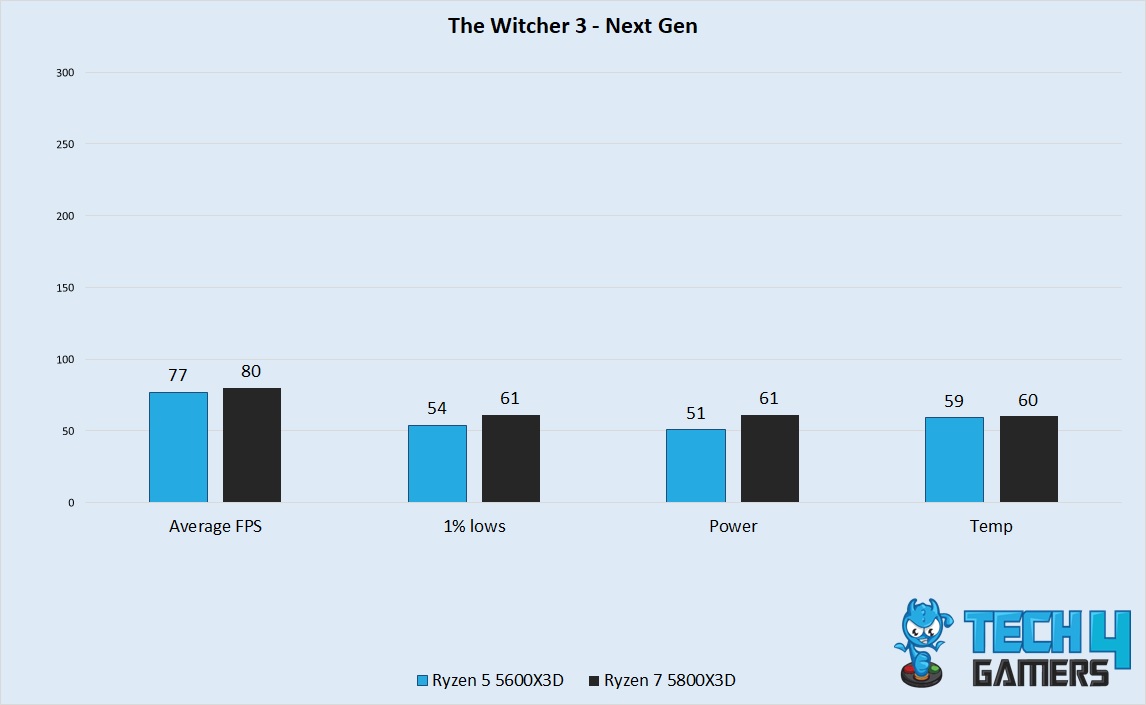
- Coming to a rework of a relatively old game, our test of The Witcher 3 – Next Gen performed slightly better on the 5800X3D. It had an average framerate of about 80 FPS, whereas the 5600X3D had a framerate closer to 77 FPS.
- 1% lows showed a little more deviance than the averages in this game. The 5600X3D had lows of 54 FPS, whereas the 5800X3D had lows of about 61 FPS.
The Last Of Us
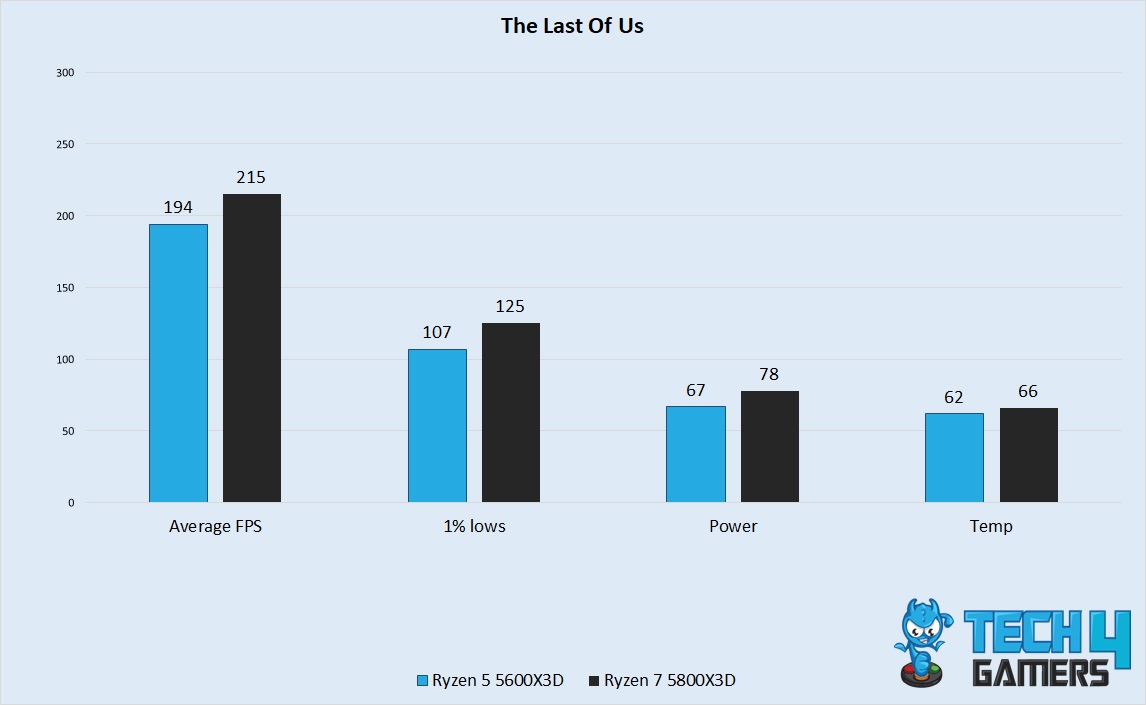
- Moving to an unoptimized game running on excellent hardware, our test of The Last Of Us performed great on both processors, though there was a noticeable difference in performance. The 5600X3D had an average framerate of 194 FPS, whereas the 5800X3D had about 215 FPS.
- 1% lows showed a similar delta in performance, with the 5600X3D maintaining 107 FPS, whereas the 5800X3D maintained around 125 FPS. Once again, this difference is a noticeable one.
CS:GO
- To end this comparison section, we tested CS: GO, a very CPU-dependent game that will show us the extreme case of the possible performance difference between these two processors. In his game, the 5600X3D had an average framerate of 547 FPS, whereas the 5800X3D had a higher framerate of 583 FPS.
- 1% lows were much more modest compared to the average framerates. The 5600X3D had lows of about 151 FPS, whereas the 5800X3D had lows of around 163 FPS.
Overall Gaming Performance
Framerate
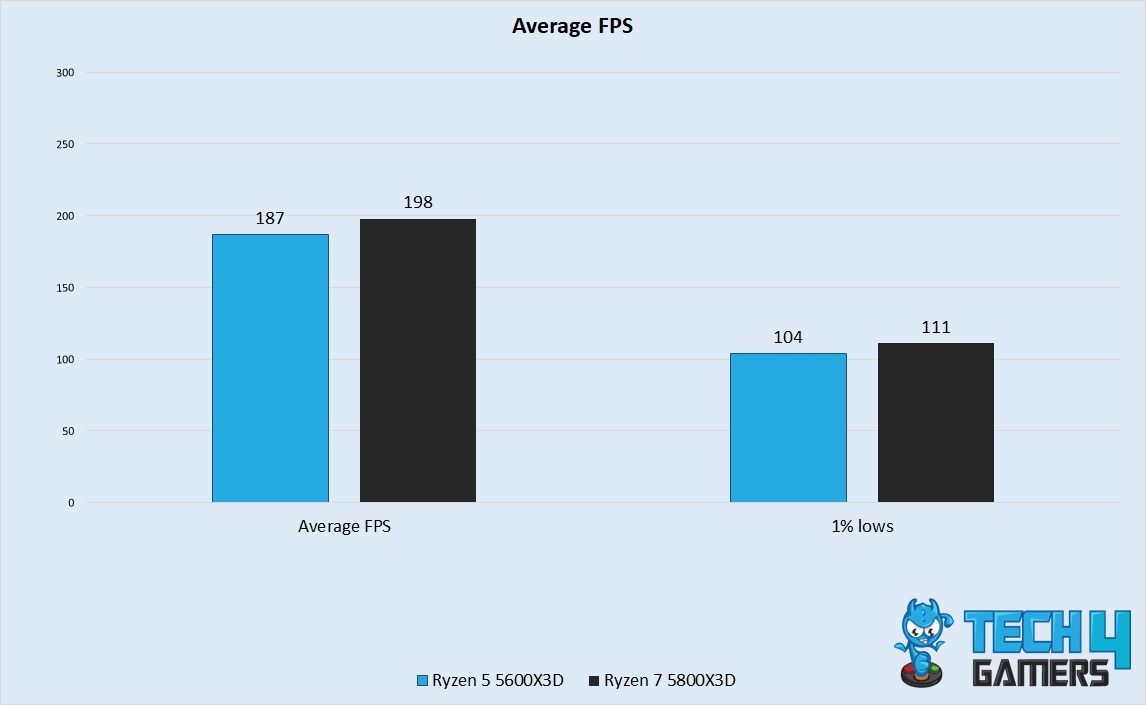
The 5600X3D performed well compared to the Ryzen 7, which had a slight 6% advantage. As newer graphics processing units enter the market, this lead may increase to 8% or 10% in the future. The Ryzen 5 5600X3D had an average framerate of 187 FPS in the games tested in this comparison, whilst the Ryzen 7 5800X3D was ahead with an average of 198 FPS.
1% lows were also greater on the Ryzen 7, with lows of 111 FPS, compared to 104 FPS on the 5600X3D. This data allows us to conclude that the Ryzen 7 was significantly faster than its lower-end counterpart.
Power
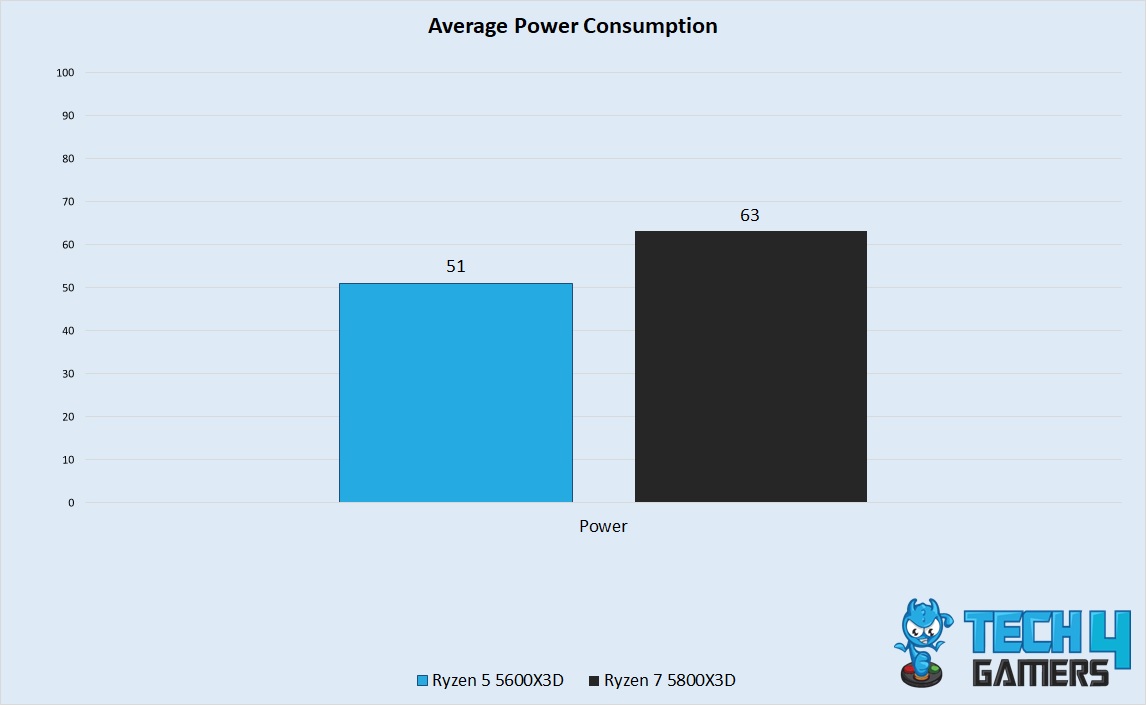
During our tests, the Ryzen 5 5600X3D had an average power consumption of 51 watts which was significantly higher than the Ryzen 7 5800X3D‘s average wattage of 63 watts. The 5600X3D outperforms the 5800X3D in terms of performance per watt by approximately 17% due to its lower power consumption with comparable architecture.
Temperatures
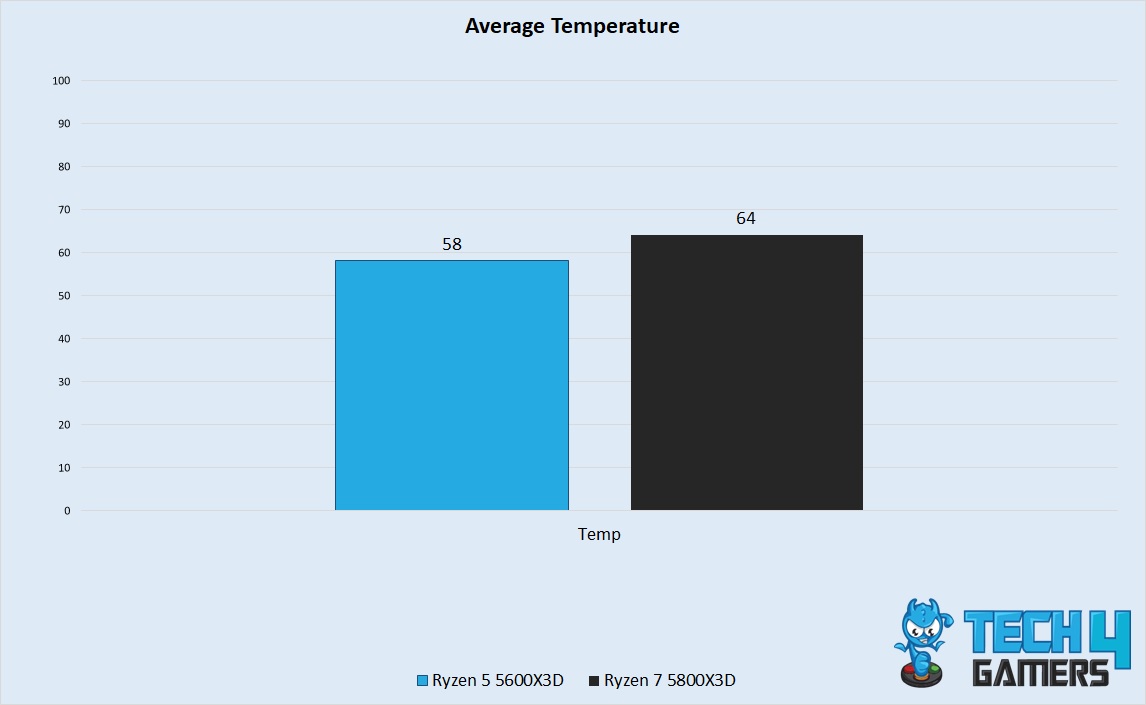
The Ryzen 5 5600X3D had an average peak temperature of 58°C in the games we tested in this comparison. In contrast, the Ryzen 7 5700X3D had an average peak temperature of about 64°C in the games we tested today. The difference in this metric can be attributed to the same reason why the power is substantially different: more cores make more heat without increasing performance in gaming in any substantial way. The difference in thermal output between these two processors was very significant.
Price And Availability
- The Ryzen 5 5600X3D has a launch price of $239, whereas the 5800X3D goes for around $277 on Amazon. As for availability, the 5800X3D should be readily available at any online or brick-and-mortar store of your choosing, whereas the 5600X3D is a Microcenter-exclusive processor. It does not help that AMD has only promised one batch of these processors, meaning that we will likely never see them again once Microcenter runs out of these processors in about 3-4 months.
Which One Should You Go For?
The Ryzen 5 5600X3D CPU is an excellent choice for budget-conscious gamers who value affordability and deliver impressive performance. Due to limited availability, finding the 5600X3D processor in stock can be challenging, but if you live near a Microcenter, you may have better luck securing one.
The Ryzen 7 5800X3D has similar specifications to the 5600X3D but comes with a higher price tag. It is readily available in the market, making it a viable option for those looking to upgrade their existing AM4 setup, especially outside the United States.
Pros And Cons
| Ryzen 5 5600X3D | Ryzen 7 5800X3D | ||
| Pros | Cons | Pros | Cons |
| Performs excellently in gaming workloads. | The lower clock speed and core count make this processor unsuitable for productivity. | Excellent performance for its price range in gaming workloads. | The 3D V-cache between the cores and IHS can significantly hurt thermal performance. |
| It is extremely power efficient compared to all other processors. | The availability of this chip is so low that it will only be sold for 3-6 months in certain parts of the US. | The most powerful gaming processor on the AM4 platform. | Very sensitive to changes in voltages, making it unsuitable for any type of overclocking. |
Frequently Asked Questions
The 3D V-cache on these chips is extremely sensitive to voltage, and the lower clock on these processors out of the box allows it to be in a suitable range.
No, neither the Ryzen 5 5600X3D nor the Ryzen 7 5800X3D comes with a fan in the box.
Overclocking these processors can very easily damage them and, potentially, the rest of your system as well.
More From Ryzen 5 5600X3D
More From Ryzen 7 5800X3D
Thank you! Please share your positive feedback. 🔋
How could we improve this post? Please Help us. 😔
[Comparisons Specialist]
I’m a passionate computer hardware expert specializing in CPUs and GPUs. With a lifelong curiosity for hardware and extensive hands-on experience, I provide valuable insights, practical advice, and in-depth analysis on these components. Engaging with the hardware community, I exchange knowledge and stay at the forefront of technological advancements.
Get In Touch: uzair@tech4gamers.com


 Threads
Threads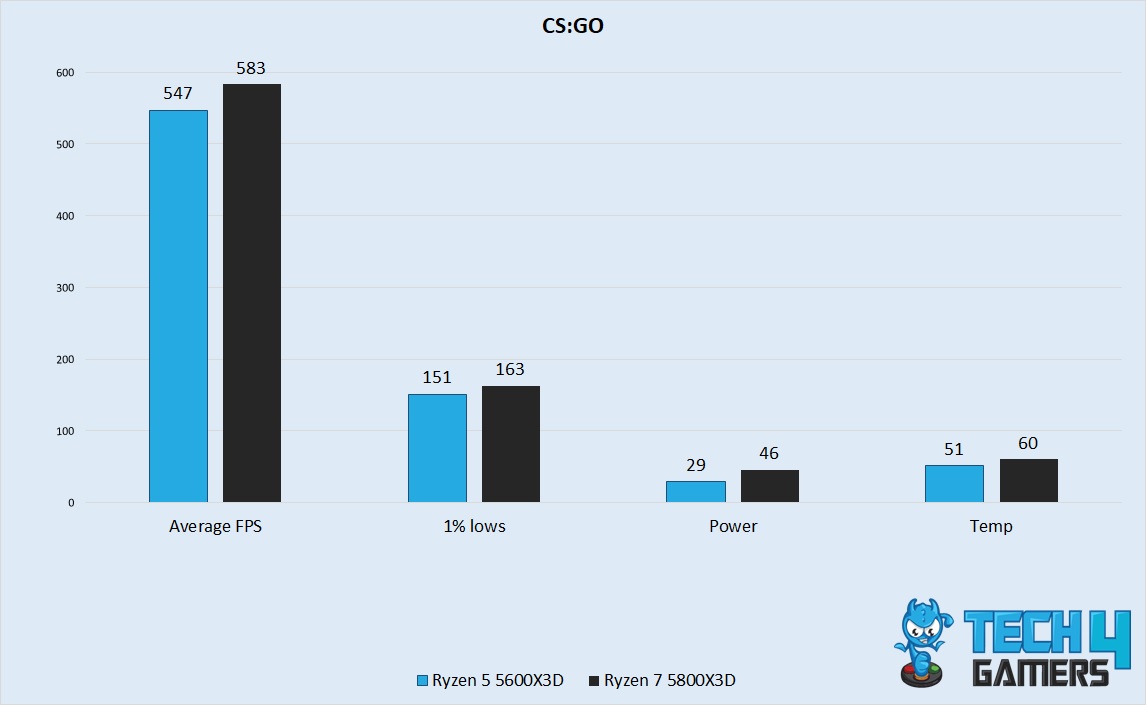

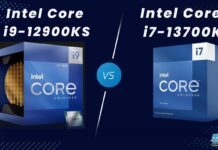
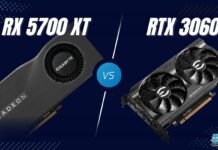
![RTX 2070 Vs RTX 3070 Ti [We Tested 8 Games]](https://tech4gamers.com/wp-content/uploads/2023/06/GPU-Comparison-Template-NEW-2-1-218x150.jpg)
